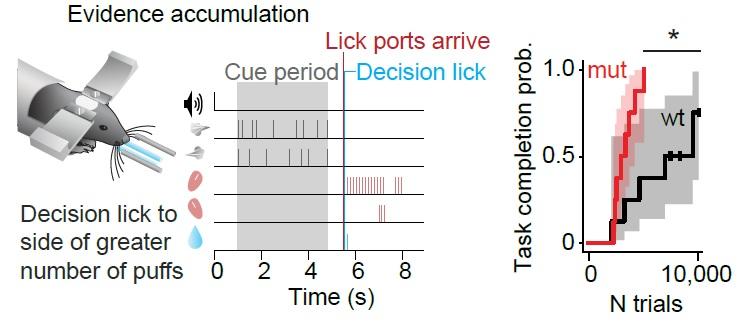An update to our manuscript on enhanced learning with cerebellar perturbations is now available at BioRxiv: https://www.biorxiv.org/content/10.1101/2021.12.23.474034v2.
Perturbation to the cerebellum can lead to motor dysfunction, cognitive deficits, and behavioral inflexibility. Here we report that a cerebellum-specific transgenic mouse model with disrupted Purkinje cell function shows unexpectedly accelerated learning on a sensory evidence-accumulation task, as well as enhanced sensory reactivity to touch and auditory cues. Computational latent-state analysis of behavior revealed that accelerated learning was associated with enhanced focus on current over past trials. Learning was also accelerated by providing cue-locked optogenetic stimulation of Purkinje cells, but unaffected by continuous optogenetic interference with Purkinje cell activity. Both transgenic and optogenetically-boosted mice showed prolonged electrophysiological activity in Purkinje-cell complex spikes and anterior cingulate cortex. We suggest that cerebellar activity may shape evidence-accumulation learning by enhancing task focus and neocortical processing of current experience.


